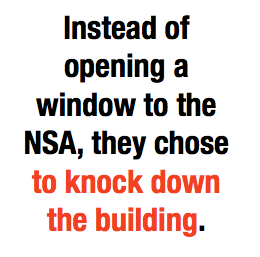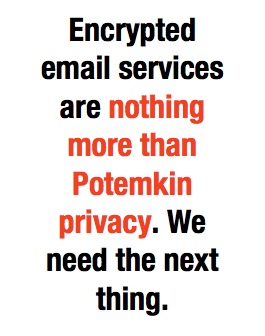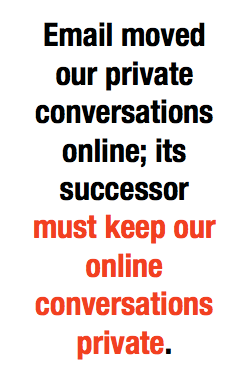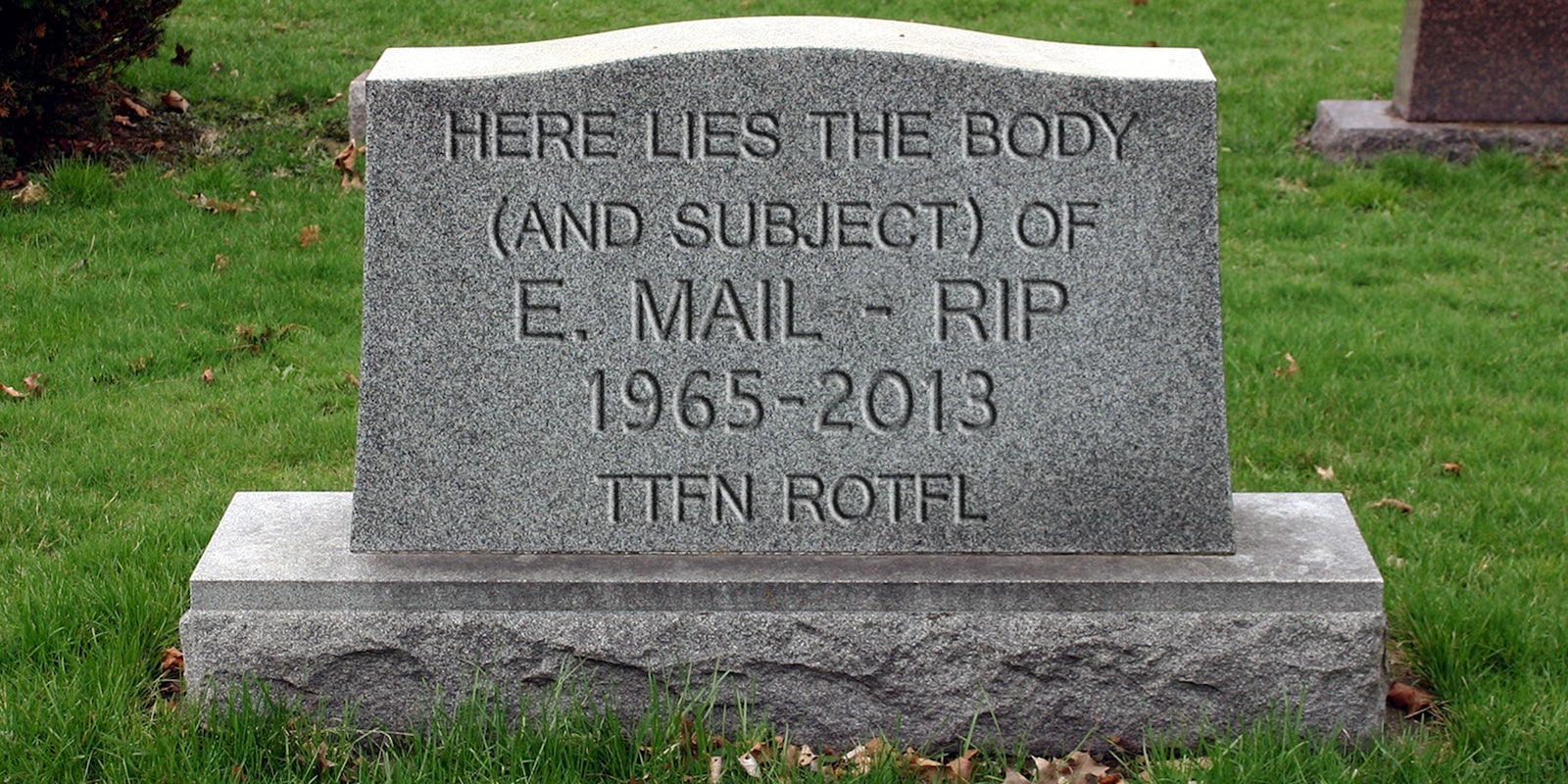Last week, Lavabit, an encrypted email service, shut itself down; now another company, Silent Circle, has also abruptly shut down its own encrypted email service. Both publicly stated that their decision was due to the potential of government surveillance. Instead of opening a window to the NSA, they chose to knock down the building.
The closure of Lavabit and Silent Mail marks the death of truly private, encrypted email. Maybe it should mark the end of email altogether.
In a cryptic letter, Ladar Levison, Lavabit’s operator claimed to have shut down to service to avoid becoming “complicit in crimes against the American people.” The letter continues, “I wish that I could legally share with you the events that led to my decision. I cannot.” While we do not know exactly what happened, we can make an obvious guess—that it has to do with the the National Security Agency (NSA) and the leaker Edward Snowden. Why? Because Snowden reportedly used Lavabit as his email service, and you can be sure the NSA would love to get their hands on his account.
 Silent Circle, a private communications startup, offered a similar secure email service, Silent Mail, as part of its suite of products. The company stated on its blog that while they have not received any demands from the government, they are shuttering the service before they do. And that’s not all. Not only did they turn off the service, they also wiped all servers and therefore any chance of recovering data.
Silent Circle, a private communications startup, offered a similar secure email service, Silent Mail, as part of its suite of products. The company stated on its blog that while they have not received any demands from the government, they are shuttering the service before they do. And that’s not all. Not only did they turn off the service, they also wiped all servers and therefore any chance of recovering data.
While for now there are other companies offering encrypted email, their days are likely numbered. Silent Circle’s CEO Mike Janke put it succinctly: when it comes to privacy, “email is fundamentally broke.” It can never be secure. Thus, encrypted email services are nothing more than potemkin privacy. We need the next thing.
 Email has revolutionized how we communicate, bridging the gap between snail mail and the digital age. The classic fields—”To,” “From,” and “cc” (literally “carbon copy”), are all a skeuomorphic reference to the paper version of the medium. But the reality is that generations growing up today might well never send a physical letter.
Email has revolutionized how we communicate, bridging the gap between snail mail and the digital age. The classic fields—”To,” “From,” and “cc” (literally “carbon copy”), are all a skeuomorphic reference to the paper version of the medium. But the reality is that generations growing up today might well never send a physical letter.
Email, you have served us with distinction, but now it’s time to retire. In the new electronic frontier, where privacy has become an endangered resource, we need to find something better—something secure.
What might that be? There have been any number of contenders to trying to take on email’s role: Google Wave, Google+, Facebook Messages; the list could go on. Personally, I don’t know what it will be yet. It isn’t social media, or at least the Twitters and Tumblrs that exists today. They are great, but they aren’t about to replace email. It isn’t Skype or Google Hangouts. Nobody wants to be on video chat all day.
 So far, alleged email-killers have focused on flash, whether embedding them in our social networks or integrating snappy videos. But personal messages, between two brothers discussing how to take care of their aging parents or two friends going off to different colleges are not about flash, they are about substance. These are not conversations to be trivialized with badges and Vines. They are important, private conversations that deserve to be composed, sent, received, and stored in just that way: privately.
So far, alleged email-killers have focused on flash, whether embedding them in our social networks or integrating snappy videos. But personal messages, between two brothers discussing how to take care of their aging parents or two friends going off to different colleges are not about flash, they are about substance. These are not conversations to be trivialized with badges and Vines. They are important, private conversations that deserve to be composed, sent, received, and stored in just that way: privately.
I will not pretend to be qualified to design the app that will kill email here. But to the person who is designing it, whether in the hallways of academia or the garages of Silicon Valley, I will say this: Email moved our private conversations online; its successor must keep our online conversations private.
So, thank you NSA. Maybe, just maybe, your overreach has done us all a great service. Maybe you’ve pushed us away from that leaky email protocol we’ve been strapped to since the birth of the Web—a protocol that lets the world’s governments walk all over our conversations, in the name of national security. Maybe you’ve pushed us towards a new system where our conversations are imbued with the fundamental dignity of privacy.
Chris R. Albon is a political scientist and writer on the global politics of science and technology. Chris earned a Ph.D. in Political Science from the University of California, Davis. He blogs at ChrisRAlbon.com.
Illustration by Fernando Alfonso III / Jason Reed


